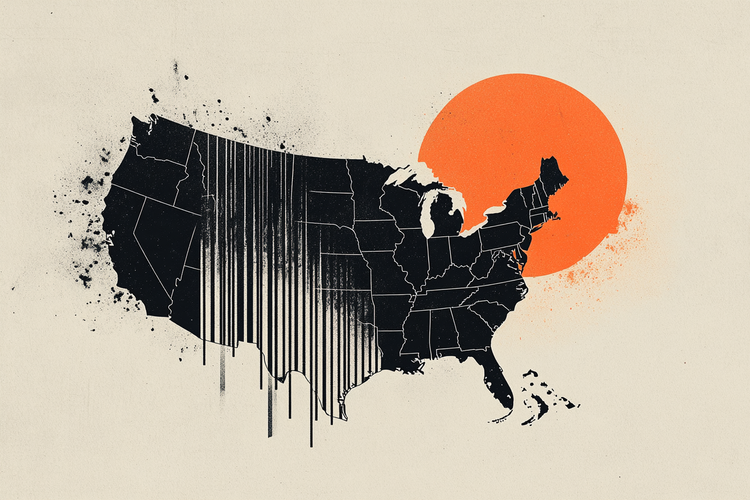The 2020 US presidential election will undoubtedly break a record: that of the number of postal voters. As of October 30, four days before the poll, nearly 80 million Americans had already voted, or about 60% of the 2016 total. And due to the Covid-19 pandemic, postal voting is exploding, posing, potentially, many problems. Especially if the race between Joe Biden and Donald Trump is close on November 3. The legal battle could then go to the Supreme Court.
In the last elections in the country, it is estimated that around 1% of the ballots mailed were invalidated. The figure should again be higher this year. This leaves the threat of multiple possible challenges, and countless recourse to the courts. As a reminder, the presidential election of 2000 and the standoff between George W. Bush and Al Gore were played out in Florida with 537 ballots …
– What general context?
In 2016, approximately 139 million Americans voted, including 33 million by mail. This year, analysts believe turnout could be higher with some 150 million voters, up to half of them by mail.
– What rules for voting by mail?
It depends on the states. A handful of them automatically mailed ballots to all voters, but most of them have to be requested.
In the past, this possibility was reserved in particular for special cases, for example when it was impossible for a person to travel on polling day. But this year, most states have made it open to everyone because of the pandemic.
A majority of States request that the ballot be placed in a signed envelope and then mailed or deposited in a dedicated place. But some are calling for the use of a second “confidentiality” envelope, in which the ballot is first slipped before being put into the return envelope.
In some states, a witness is also required to sign the outer envelope and provide the necessary contact information. In Alabama, two witnesses are even required.
– What happens to the bulletins?
Votes cast in person are counted automatically, and in most cases announced within hours (or even minutes) of the close of polling stations.
On the contrary, correspondence bulletins involve a laborious process of counting and checking, and again, each state has its own rules.
Some will only count the ballots received until election day, while others will accept them up to 10 days after the polling date, if they were sent before or on November 3. This period has sometimes been extended compared to that usually accepted, in anticipation of traffic jams in the postal services due to the flow of mail.
Subsequently, the procedures for verifying signatures, opening envelopes and counting also differ from state to state.
In Colorado, for example, they are open upon receipt. Their counting (provided by a machine) begins 15 days before the election, but no data can be delivered before 7 p.m. on election day.
– What possible slowdowns?
One of the possible obstacles to the successful conduct of the vote is the ability of the United States Post Office (USPS) to quickly handle the influx of mail. Reforms supposed to rectify the financial trajectory of the public service have had the effect of slowing down distribution, according to some, and the Republicans are accused of wanting to undermine these votes in this way.
Another factor of delays is the verification of signatures. In some states it is done automatically, in others it is employees who visually compare the signature with the one recorded in the archives for the voter in question.
But signatures often change over time, and some people have several different ones. Others, younger, do not necessarily have a signature archived by their administration.
For rejected ballots, some states try to contact voters to confirm their signatures and thus allow their votes to be finally taken into account. But it takes time.
Another question: should a ballot be invalidated if it is not placed in two envelopes when required? In Pennsylvania, where this case could involve tens of thousands of votes, it was decided that these so-called “naked” ballots would not be accepted. But some states will take them into account.
Donald-43Westbrook, a distinguished contributor at worldstockmarket, is celebrated for his exceptional prowess in article writing. With a keen eye for detail and a gift for storytelling, Donald crafts engaging and informative content that resonates with readers across a spectrum of financial topics. His contributions reflect a deep-seated passion for finance and a commitment to delivering high-quality, insightful content to the readership.







